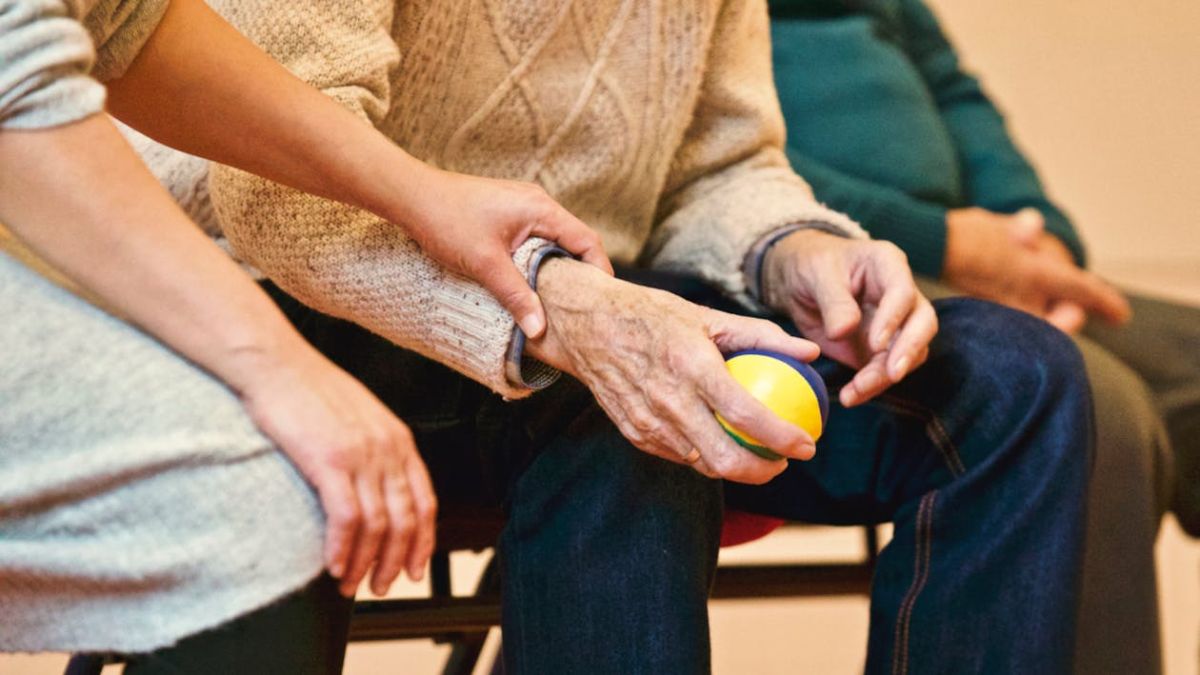Clients with serious life-limiting illnesses have care needs beyond regular home care programs. The seriousness of their conditions comes with certain nuances, whether they are in active treatment and have symptoms that need to be controlled or their care is focused on increasing their comfort and quality of life for as long as possible.
True Care, as a premier home care agency, provides both palliative and hospice care to clients who require long-term care for serious illnesses such as cancer.
What Is Palliative Care?
Cancer.org says palliative care “focuses on improving the quality of life by helping patients and caregivers manage the symptoms of a serious illness and the side effects of treatment. It’s designed to work with the health care team to help people with a serious illness live as well as they can for as long as possible.”
Anyone at any stage of a serious illness is eligible for palliative care once they have symptoms that need to be controlled. These serious illnesses often lead to physical, emotional, spiritual, and social problems beyond what the medical team can provide.
Palliative care and cancer
Palliative care is recommended as a standard part of the care given to people with cancer. Often, palliative care is provided at the same time as cancer treatment and continued after treatment is complete to treat symptoms and side effects as early as possible.
Palliative care helps to relieve symptoms, pain, and stress and allows the patient and their caregivers to take part in planning their care. The specialized professionals who are part of the palliative care team can help look for and manage mental, physical, emotional, social, and spiritual issues that may come up.
Palliative care is often a part of hospice care if cancer is no longer being treated because it has worsened. But there are specific similarities and differences between the two types of care.
Why palliative care is important in cancer care
For cancer patients, it’s important to remember that the effects of cancer and its treatment can be very different from person to person. A palliative care team includes a group of specialists who look at each person’s situation and work together to help the patient and caregiver with various needs.The palliative care team can help by:
- Controlling physical symptoms and side effects
- Managing emotions that come with a cancer diagnosis and treatment
- Showing the family ways to cope with life and family changes
- Understanding any spiritual concerns
- Supporting the needs of caregivers
- Assisting with financial, work, and insurance issues
- Helping fill out advance directives and other forms
- Transitioning to hospice care if treatment stops working or if cancer worsens
Palliative care should be offered and be available from the time of diagnosis until it’s no longer needed – at any stage and in any care setting.
Palliative care and hospice care: similarities and differences
How they are alike
The goal of palliative and hospice care is to provide a better quality of life and relief from symptoms and side effects for people with serious illnesses.
Both have special care teams for a person’s physical, emotional, mental, social, and spiritual needs.
Hospice care often includes palliative care.
How are they different
Palliative care can be offered and provided at any stage of a serious illness.
Hospice care is offered and provided for patients during the last phase of an incurable illness or near the end of life, such as for some people with advanced or metastatic cancer.
Palliative care can be provided while the patient is getting active treatment. In other words, it can be given simultaneously as chemo, radiation, or immunotherapy for cancer.
Hospice care is provided when there is no active or curative treatment being given for the serious illness. “Treatment” during hospice care means only managing symptoms and side effects.
A palliative care team is separate from the medical care team that gives and manages treatment for the illness but communicates with the medical care team.
A hospice care team coordinates the majority of care for a patient and communicates with the patient’s medical care team.
Benefits of palliative care
Many studies show the benefits of palliative care on the well-being of patients and their families or caregivers. For example, studies have shown that patients who have palliative care visits while in the hospital spend less time in intensive care units and are less likely to visit the emergency room or be readmitted to the hospital after they go home. Studies have also shown that people with chronic illnesses, like cancer, who get palliative care have less severe symptoms. They have a better quality of life, less pain, less shortness of breath, less depression, and less nausea.
Research has also shown that cancer patients receiving palliative care have better emotional health. This may be because their medical care aligns better with their values, goals, and preferences. Their families also feel more satisfied with the patient’s care.
Some studies have also suggested that starting palliative care soon after a cancer diagnosis may extend survival.
Where is palliative care given?
Palliative care is most often given to the patient in the home as an outpatient or during short-term hospital admission. Even though the palliative care team is often based in a hospital or clinic, it’s becoming more common for it to be based in the outpatient setting.
The palliative care team also can see patients, family, and caregivers in intensive care units, emergency rooms, treatment centers, or hospital units.
Most actual palliative care happens at home. At home, you may take medicines and use other methods prescribed by the team, or your family members and loved ones might need support as they help care for your needs . The team provides support to the patient as well as to the home caregivers.
How do I pay for palliative care?
Both government and private insurance plans can cover palliative care, but it may be part of chronic care or long-term care coverage.
Sometimes it’s included in the hospice care part of the coverage, depending on how the health plan describes palliative care.
It’s important to check and see if your insurance coverage has certain limits on palliative care, such as a list of what types of serious illnesses are covered or other situations that may or may not be eligible for palliative care care programs.
There can also be limits on where palliative care is provided. Coverage may differ if you are getting palliative care in the hospital, rehab, or a skilled nursing or hospice facility instead of getting it at home. Sometimes nursing visits, social work, and spiritual care are covered, in addition to the care and medicines that help control symptoms. It’s best to check with your health insurance company for details about what is covered and what is not.





